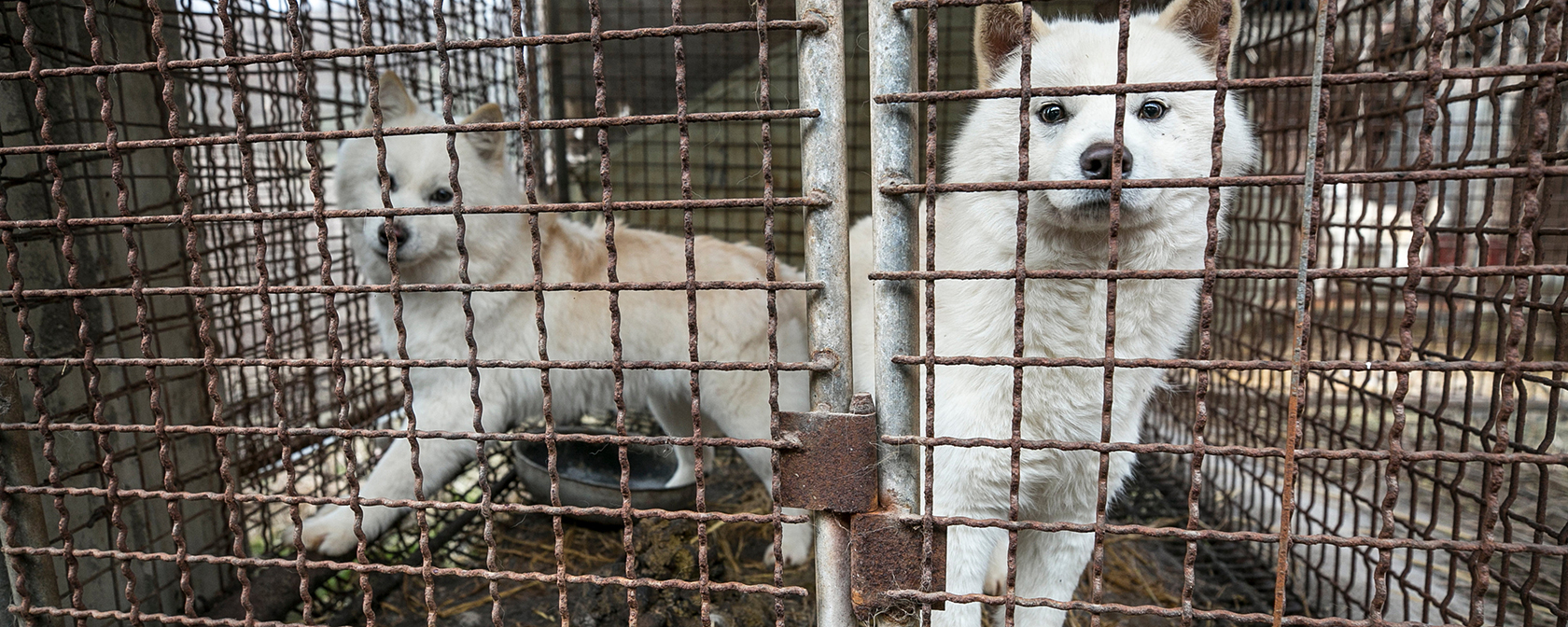By Sara Amundson and Kitty Block
There is unprecedented focus on the challenges of animal welfare in China in the wake of COVID -19. The sharpening international scrutiny of its wildlife markets and wildlife trade will shake up animal protection policy in China and around the world. The news that a new classification scheme issued by China’s Ministry of Agriculture and Rural Affairs has exempted dogs from its list of animals considered to be livestock for the purposes of the meat trade is an encouraging sign that China’s leadership is open to policy changes that will make the world safer for everyone. “With the progress of human civilization and the public’s concern and preference for animal protection,” the Ministry’s report noted, “dogs have changed from traditional domestic animals to companion animals. Dogs are generally not regarded as livestock and poultry around the world, and China should also not manage them as livestock and poultry.”
The report comes just days after Shenzhen became the first city in mainland China to ban the consumption of dogs and cats. Our campaign to end the dog and cat meat trade there, for which an estimated 10 million dogs and 4 million cats a year are killed, is gaining ground, both within and outside of China, and we’ve received tremendous support from friends and allies.
We’ve long been engaged in pressing for animal protection reforms there, and we’ve seen a number of good trends over the last decade. Humane Society International has partnered with Chinese organizations, and our global campaigns enjoy the support of countless kindhearted Chinese citizens and Chinese Americans. Our colleagues were among the presenters at the most recent Asia for Animals conference at Dalian in October, where they saw evidence of burgeoning interest and participation on the part of China’s rising generation of animal advocates. There are initiatives afoot there to combat the trade in ivory, shark fins, and dog meat. China has also increased its commitments to the shift away from animal methods for cosmetics and product testing. There’s even a push for meat reduction, as the government has called for a massive drop in the consumption of animal products. In many instances, moreover, the Chinese government has been receptive to the forms of constructive engagement we’ve supported.
We know from experience too that petkeeping culture is a gateway to higher humane standards for all animals, and China will be no different. Most people in China don’t eat dogs. There are an estimated 91.5 million dogs and cats kept as pets there, and Chinese citizens want to see an end to the theft of their companion animals for a meat trade that only a small percentage of the population supports. As China’s petkeeping culture grows, we’re confident that it will convey great benefits to animal protection there and in the broader world.
Over the years, we’ve been critical of China’s role in the decimation of wild animal populations worldwide, its zoo imports, its use of dog fur in the fashion industry, its role in the spread of intensive confinement of farm animals, and its extensive farming of wild animals for fur, bear bile, and other products. We’ve carried out investigations in the U.S. of transnational wildlife trafficking and the smuggling of elephant ivory and rhino horn products, and worked to tighten up U.S. laws to stop such trade. In our campaigns against the dog meat trade, we’ve brought scorching attention to the lurid and violent dog meat festival at Yulin and cooperated with Chinese advocates in the rescue of animals from the trade. We also worked for passage of a U.S. federal law to forestall the spread of the dog meat trade into North America.
We’ll continue to keep a close eye on how countries around the world regulate animal industries. The proposed livestock list in China is problematic in many ways, not least because it includes a variety of farmed wildlife species such as Sika deer, red deer, reindeer, alpaca, ostrich, and species typically farmed in the millions in China for the global fur trade, specifically mink, silver fox, blue fox and raccoon dog. China’s temporary restrictions on wildlife markets and other forms of wildlife-related trade should be made permanent, as Wildlife Markets and COVID-19 argues.
Right now, however, what China needs—what the whole world needs—is thoughtful engagement and reckoning with those human-animal interactions that expose billions of people and animals worldwide to life-threatening danger and risk. This is an agenda we’ve championed for a long time, but it is now urgent beyond our previous ability to conceive. Timing is critical and reform is needed in China, here in the United States and around the world. We can achieve the needed reforms with collaboration, determination and the understanding that we’re in it together.
Kitty Block is President and CEO of the Humane Society of the United States.




